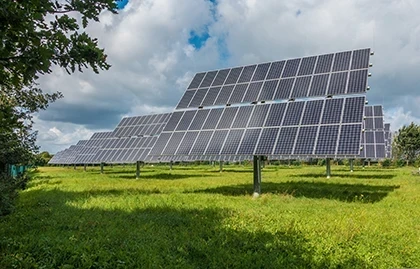Scientists Fear Loss of Climate Data Under Trump

In the wake of the tumultuous political climate during Donald Trump's presidency, scientists across the United States have expressed deep concern about the potential loss of crucial climate data. These fears emerged from a broader apprehension that, in the midst of political upheaval, the progress made in climate research could be severely disrupted. With the outgoing administration's stance on climate change being one of skepticism and reluctance to acknowledge the scientific consensus on global warming, many researchers worried about the future of environmental data collection and its availability for future use.
Loss of Key Climate Data
One of the most significant threats identified by scientists was the risk of losing years’ worth of critical climate data due to the Trump administration’s policy direction. During his presidency, Trump made efforts to roll back various environmental regulations, including those aimed at addressing climate change. The administration's shift away from scientific research and policy meant that some key environmental and climate research data could be at risk of disappearing or being inaccessible.
Scientists were particularly concerned about data held by federal agencies that were being targeted for cuts or restructuring, such as the Environmental Protection Agency (EPA) and the National Oceanic and Atmospheric Administration (NOAA). These organizations play a central role in tracking and analyzing climate data, including temperature records, ocean levels, and greenhouse gas emissions. The political climate of the time led to fears that this invaluable data could be deleted or archived, possibly hindering future research on climate trends.
Many scientists feared that key records of greenhouse gas emissions and temperature measurements could be erased or moved to inaccessible formats. Such actions could not only undermine climate change research but also undermine efforts to address global warming and mitigate its effects. With government researchers facing the uncertainty of policy changes and potential data cuts, concerns mounted over the long-term implications for environmental science.
The Role of Scientific Integrity
At the heart of these concerns was the principle of scientific integrity. Researchers in the field of climate science rely on robust, publicly accessible data to make informed decisions about how to address global environmental issues. When data is altered, restricted, or removed, it creates gaps in the historical record, making it difficult for scientists to track long-term trends and assess the effectiveness of climate policies.
The idea of losing climate data during the Trump administration was particularly alarming because climate science plays such a central role in understanding and addressing the global climate crisis. Accurate, reliable data is critical for guiding policy decisions, shaping international agreements, and formulating strategies to combat climate change.
As the Trump administration distanced itself from the scientific community, particularly when it came to environmental policies, many scientists looked to other means to preserve critical data. One such initiative was the climate data "data rescue" movement, which encouraged scientists and citizens alike to back up critical climate information before it could be lost. Universities and nonprofit organizations, alongside individual climate researchers, worked to safeguard essential climate data from potential erasure, focusing on information that had been collected over decades.
Political Backlash Against Climate Science
Trump's administration was widely regarded as a period of political backlash against scientific consensus on climate change. In addition to the potential loss of climate data, the administration's climate policy agenda favored deregulation and sought to roll back key environmental protections that had been enacted during previous administrations. This stance stood in direct opposition to the overwhelming consensus of the scientific community, which recognizes climate change as a serious, human-driven threat to the planet.
In addition to reducing funding for research agencies, the Trump administration also pursued actions that would have directly hindered the effectiveness of climate data collection and environmental monitoring. A lack of emphasis on environmental issues in policy and public discourse led to concerns among climate scientists that government research into key environmental topics could become increasingly difficult to pursue.
The political environment created by the Trump administration also contributed to the public's general mistrust of scientific research, especially when it came to climate science. This, in turn, made it more challenging for scientists to engage in public dialogue about climate change, as many of their findings and recommendations were dismissed or politicized.
The Road Ahead
Despite the challenges posed by the Trump administration, climate science has continued to make significant strides in recent years. Many of the concerns regarding the loss of key climate data were alleviated when efforts were made by scientists and institutions to preserve crucial information. Nevertheless, the incident highlighted the vulnerability of scientific research in the face of political shifts and the importance of safeguarding data to ensure the continuity of scientific progress.
As the U.S. and the world continue to confront the impacts of climate change, there remains a need for robust, independent, and accurate climate data to inform future action. Scientific transparency, the protection of climate data, and the integrity of research remain critical to advancing efforts to reduce greenhouse gas emissions and mitigate the effects of global warming.
In the aftermath of Trump’s presidency, there has been a renewed emphasis on restoring faith in climate science and rebuilding government agencies that are tasked with environmental monitoring. Under the leadership of the Biden administration, efforts to protect climate data and support scientific research have regained momentum. However, as the fight against climate change continues, it is essential to ensure that data preservation and the integrity of scientific research remain priorities moving forward.
The fear of losing essential climate data during the Trump administration highlighted a significant issue: the vulnerability of scientific progress when political forces threaten to undermine the work of researchers. Although efforts to rescue and preserve climate data have been successful, this episode serves as a reminder of the importance of safeguarding scientific research and ensuring that data is not compromised for political reasons. As the global community works toward solutions for climate change, ensuring that science remains unbiased, transparent, and protected is critical for shaping effective policy and responding to the ongoing environmental crisis.









